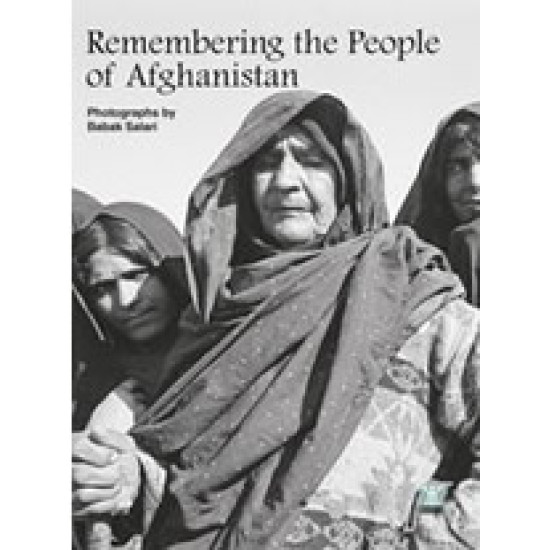

ИЗЧЕРПАН


Remembering the People of Afghanistan
| Автор: | Babak Salari - photographer |
| Година на издаване: | 2009 |
| Език: | Английски |
| Корица: | Мека |
| Страници: | 174 |
| Издател/Прозиводител: | Жанет 45 |
| ISBN/Barcode: | 9789544915230 |
| Код: | 0158.00306 |
- ИЗЧЕРПАН
4.20 (5 ratings by Goodreads)
34.95 лв.
От същия бранд
"In the tradition of Capa and Salgado, Salari's images are ones of close proximity ever revealing a mastery of the black and white photographic form, where shades of grey unfold an alternative, humane and necessary narrative of beauty and sorrow."
Rawi Hage
Winner of the IMPAC Dublin Literary Award for De Niro's Game
"In a fast paced world with media focussed on single, dramatic images there is the danger that extended documentary work like that of Babak Salari’s may be missed in the rush for the next great cover shot. Salari’s photographs, by contrast, require us to slow down and savour the moments he has rendered on film. Like any story, the best way to experience "Remembering the People of Afghanistan" is to be conscious of the telling and willing to let ourselves be affected by it.
Salari’s photos form a rich, complex story told in a soft voice. It is the story of a people recounted with empathy and respect. At times, it is also autobiographical as Salari appears to relive moments and spaces of his own exile in the lives of those in front of his camera.
The story here is narrated in quiet silvery tones, bold heavy shadows, in the rhythm of repeating forms and faces, in telling layers, dusty floors, in the eyes of children and adults, in the turn of a person’s hand. Salari captures these elements with his typical understatement; done with such sleight-of-hand, we must be attentive, even revisit images to fully appreciate them.
Hands play an integral role in this collection. Salari consistently incorporates them: look for them in portraits, in gestures, at the edges of a frame. Salari is conscious of how they complement faces and expressions, and is careful to include them and the insight they offer.
To appreciate the skill and eloquence of Salari’s photography is to appreciate his telling of the story. But Babak specifically invites us to look beyond the language of his photography to the story itself, the people. We are invited to connect with the Afghans, witness them as actual people instead of the generic background figures that populate daily news clips. These pictures are intimate and personal, open. They show us the character, dignity and strength of civilian Afghans who live, play, work and study in a dire physical and political landscape. These pictures motivate."
David Hopkins
Department of Professional Photography
Dawson College
Rawi Hage
Winner of the IMPAC Dublin Literary Award for De Niro's Game
"In a fast paced world with media focussed on single, dramatic images there is the danger that extended documentary work like that of Babak Salari’s may be missed in the rush for the next great cover shot. Salari’s photographs, by contrast, require us to slow down and savour the moments he has rendered on film. Like any story, the best way to experience "Remembering the People of Afghanistan" is to be conscious of the telling and willing to let ourselves be affected by it.
Salari’s photos form a rich, complex story told in a soft voice. It is the story of a people recounted with empathy and respect. At times, it is also autobiographical as Salari appears to relive moments and spaces of his own exile in the lives of those in front of his camera.
The story here is narrated in quiet silvery tones, bold heavy shadows, in the rhythm of repeating forms and faces, in telling layers, dusty floors, in the eyes of children and adults, in the turn of a person’s hand. Salari captures these elements with his typical understatement; done with such sleight-of-hand, we must be attentive, even revisit images to fully appreciate them.
Hands play an integral role in this collection. Salari consistently incorporates them: look for them in portraits, in gestures, at the edges of a frame. Salari is conscious of how they complement faces and expressions, and is careful to include them and the insight they offer.
To appreciate the skill and eloquence of Salari’s photography is to appreciate his telling of the story. But Babak specifically invites us to look beyond the language of his photography to the story itself, the people. We are invited to connect with the Afghans, witness them as actual people instead of the generic background figures that populate daily news clips. These pictures are intimate and personal, open. They show us the character, dignity and strength of civilian Afghans who live, play, work and study in a dire physical and political landscape. These pictures motivate."
David Hopkins
Department of Professional Photography
Dawson College































